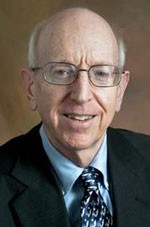Economic Analysis of Law, Ninth Edition
Series / Aspen Casebook Series
Economic Analysis of Law, Ninth Edition
Book length
1056 pages
Publication Date
2014-01-08
Edition
Ninth Edition
Description
Buy a new version of this textbook and receive access to the Connected eBook on Casebook Connect, including lifetime access to the online ebook with highlight, annotation, and search capabilities. Access also includes an outline tool and other helpful resources. Connected eBooks provide what you need most to be successful in your law school classes.
Lucid, comprehensive, and definitive in its field, this text covers every aspect of economic analysis of the law.Features:
- Two new chapters, one on intellectual property, one on international and comparative law, both exploding fields of great importance.
- Earlier editions' questions have been converted to answers, making the book more accessible and informative.
- Revised to be clearer and less technical.
- More eclectic, reflecting recent criticisms of "rational choice" theory, in particular the need to supplement it with insights from psychology.
- Greater attention paid to judicial behavior, realistically modeled and explained in economic terms.
- Incorporates insights from the veritable explosion of books and articles published in the last few years on economic analysis of law.
Read More
Professor Materials
Please sign in or register to view Professor Materials. These materials are only available for validated professor accounts. If you are registering for the first time, validation may take up to 2 business days.
Product Information
Edition
Ninth Edition
Publication date
2014-01-08
Copyright Year
2014
Pages
1056
Connected eBook + Hardcover
9781454833888
Connected eBook (Digital Only)
9781543857467
Subject
Economics and the Law
Are you an educator?
Publication date
01-08-2014
Publication Date
01-08-2014
Are you an educator?
Economic Analysis of Law, Ninth Edition
Connected eBook + Hardcover
Are you an educator?
Publication date
01-08-2014
Publication Date
01-08-2014
Are you an educator?
Economic Analysis of Law, Ninth Edition
LLPOD
Are you an educator?
Publication date
01-06-2014
Publication Date
01-06-2014
Are you an educator?
Economic Analysis of Law, Ninth Edition
Connected eBook (Digital Only)
Are you an educator?
